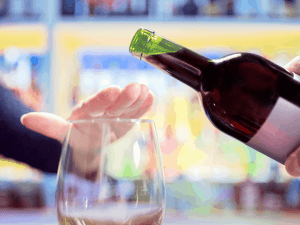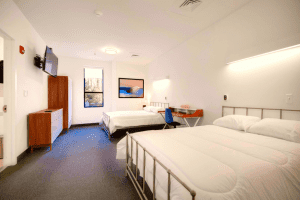Programs like Alcohol Awareness Month exist to ensure that families and communities have the resources, information, and options available to control the crisis of alcoholism.

Alcohol Awareness Month campaigns can include advertising, especially in areas that are prone to alcohol abuse to promote recovery awareness.

National Alcohol Awareness Month is sponsored by the National Council on Alcoholism and Drug Dependence (NCADD) to educate the masses about America’s #1 health problem.
Use Alcohol Awareness Month to celebrate alcohol-free healthier parties for adults. Invite over friends and family to enjoy a day in sobriety.
BOCA RATON, FLORIDA, UNITED STATES, March 29, 2022 /EINPresswire.com/ — When is Alcohol Awareness Month?
Each April since 1987, the National Council on Alcohol and Drug Dependence, Inc. (NCADD) has sponsored Alcohol Awareness Month to increase public awareness and understanding, reduce stigma and encourage local communities to focus on alcoholism and alcohol-related issues.
Marty Mann founded the National Council on Alcoholism and Drug Dependence (NCADD). She was one of the early members of Alcoholics Anonymous and the first woman to have successfully gone through a 12-step group. She founded NCADD to help people like her get counseled and treated for alcoholism and dedicated this group to key medical and scientific research for the community. Encouraged by the massive number of families going into recovery, NCADD marked April to bring about a nationwide change by using communication tools to cultivate awareness about binge drinking and how much more dangerous it can be than just a night of fun.
The Council leverages traditional and social media campaigns during April to draw attention to the causes of alcoholism and the risks of alcohol dependence and encourages people to talk about this disease. It aims to foster responsible attitudes by designating a month of candid discussions and information sharing while reaching out to the American public through community-sponsored awareness activities and campaigns designed to prevent alcoholism.
National Alcohol Awareness Month
"Alcohol's toxicity is felt not just individually but collectively as a society. We have to address it." – Ryan Zofay – Founder of We Level Up Personal Development
Alcohol Awareness Month encourages organizations and communities to reach out to the public with information about alcohol use and alcoholism as a preventable disease and encourages people who are already addicted to seek treatment.
Ten Fast Facts About Alcohol
Did you know that…
75% of esophageal cancers are attributable to chronic excessive alcohol consumption.
Nearly 50% of cancers of the mouth, pharynx, and larynx are associated with heavy drinking.
Chronic alcohol consumption is associated with a 10% increase in a woman’s risk of breast cancer.
Heavy chronic drinking contributes to approximately 65% of all cases of pancreatitis.
Among emergency room patients admitted for injuries, 47% tested positive for alcohol and 35% were intoxicated; of those who were intoxicated, 75% showed signs of chronic alcoholism.
There are more deaths and disabilities each year in the U.S. from substance abuse than from any other cause.
As many as 35% of heavy drinkers develop alcoholic hepatitis.
As many as 36% of the cases of primary liver cancer are linked to heavy chronic drinking.
Alcoholics are 10 times more likely to develop carcinoma than the general population.
Accidents related to alcohol use are among the leading causes of death for teens. [1]
These numbers suggest that problematic alcohol use continues to plague our society, and awareness about addiction and its harmful effects on our lives, is necessary in order to protect our loved ones and selves.
Alcohol Awareness Training
As Alcohol Awareness Month educates people about the dangers of alcoholism, many would like to join training programs on how to help others. The Alcohol Training Awareness Program focuses on the legal responsibilities of selling alcohol and provides training in practical skills to help licensees and their employees avoid violations, including preventing sales to underage persons. The Authority recommends that all licensees and employees who serve or sell alcoholic beverages take an Alcohol Training Awareness Program. This training is not only an effective way to prevent underage sales but, in the event the Authority charges you with a violation, proof that your staff has participated in training may reduce the penalty imposed.
Alcohol Awareness Certification
Course For Drugs & Alcohol provides access to the Drug And Alcohol Awareness Class, an educational program that may be required in some states by the court, a legal order, a legal representative, parole or probation officer, an employer, or other entity. You will need to contact your local officers to get information on where to get enrolled and be certified.
Learn About Alcohol Use Disorder
Alcohol use disorder (AUD) is a medical condition characterized by an impaired ability to stop or control alcohol use despite adverse social, occupational, or health consequences. It encompasses the conditions that some people refer to as alcohol abuse, alcohol dependence, alcohol addiction, and the colloquial term, alcoholism.
Considered a brain disorder, AUD can be mild, moderate, or severe. Lasting changes in the brain caused by alcohol misuse perpetuate AUD and make individuals vulnerable to relapse. The good news is that no matter how severe the problem may seem, evidence-based treatment with behavioral therapies, mutual-support groups, and/or medications can help people with AUD achieve and maintain recovery.
How to Help Someone Struggling With Alcohol?
Many people with AUD do recover, but setbacks are common among people in treatment. Seeking intervention services and professional help early can prevent relapse to drinking. Behavioral therapies can help your loved one develop skills to avoid and overcome triggers, such as stress, that might lead to drinking. Medications also can help deter drinking during times when individuals may be at greater risk of relapse (e.g., divorce, death of a family member).
If you feel you or a loved one may be struggling with alcoholism, don’t worry, you’re not alone. We understand how overwhelming it can be to consider seeking help for addiction and we’re here to take that burden off your shoulders. Our admissions navigators are available 24/7 to discuss your alcohol addiction treatment options and answer any questions you may have about the process.
How to Observe National Alcohol Awareness Month
Participate in the 'Alcohol-Free-Weekend' – As part of National Alcohol Awareness Month, NCADD encourages the public to spend 72 hours without alcohol. Make sure you and your family participate in this activity and monitor symptoms of discomfort or cravings within the three days. [2]
Start conversations – It is your role as a responsible adult to initiate the conversations that nobody is willing to talk about. Speak with your friends and families who you’ve noticed are reliant on heavy drinking. As a parent, teach your children about alcohol misuse and help them build coping skills. Tell them that stress, anger, loneliness, and peer pressure are a part of life and should not cause them to give in to liquor for relaxation.
Throw ‘clean’ Alcohol Awareness Month parties – Use Alcohol Awareness Month to throw alcohol-free, clean, and healthy parties for adults. Invite over friends, neighbors, and family to enjoy social gatherings without any trace of liquor. Serve kombucha, mocktails, club soda, and booze-free beer to set an example. Consider doing this thrice a month for healthy practice!
Alcohol Detox and Alcohol Treatment
Several evidence-based treatment approaches are available for AUD. One size does not fit all and a treatment approach that may work for one person may not work for another. Treatment can be inpatient and be provided by specialty programs, therapists, and doctors.
Medications
Three medications are currently approved by the U.S. Food and Drug Administration to help people stop or reduce their drinking and prevent relapse: naltrexone (oral and long-acting injectable), acamprosate, and disulfiram. All these medications are non-addictive, and they may be used alone or combined with behavioral treatments or mutual-support groups.
Behavioral Treatments
Behavioral treatments, also known as alcohol counseling or “talk therapy,” provided by licensed therapists are aimed at changing drinking behavior. Examples of behavioral treatments are brief interventions and reinforcement approaches, treatments that build motivation and teach skills for coping and preventing relapse, and mindfulness-based therapies.
Mutual-Support Groups
Mutual-support groups provide peer support for stopping or reducing drinking. Group meetings are available in most communities, at low or no cost, at convenient times and locations—including an increasing presence online. This means they can be especially helpful to individuals at risk for relapse to drinking.
Combined with medications and behavioral treatment provided by health professionals, mutual-support groups can offer a valuable added layer of support.
Please note: People with severe AUD may need medical alcohol detox to avoid alcohol withdrawal if they decide to stop drinking. Alcohol withdrawal is a potentially life-threatening process that can occur when someone who has been drinking heavily for a prolonged period of time suddenly stops drinking. Doctors can prescribe medications to address these symptoms and make the process safer and less distressing. [3] To learn more about how you can raise alertness on alcoholism, join the activities on Alcohol Awareness Month.
If you are concerned about your alcohol use and would like to explore whether you might have AUD, the We Level Up addiction treatment center is here to partner with you on your journey to recovery success. There is no better time than today! Get started with a phone call!
We Level Up treatment center network locations include:
1. We Level Up New Jersey alcohol treatment center
2. We Level Up Florida alcohol rehab center
3. We Level Up West Palm Beach alcohol treatment center
4. We Level Up Fort Lauderdale depression center
5. We Level Up Boca Raton alcohol rehab center admissions office
We Level Up's treatment centers coming soon locations are to include:
6. We Level Up California rehab center
7. We Level Up Washington behavioral health center
About We Level Up Treatment Centers
WeLevelUp is a renowned treatment center that applies evidence-based treatment modalities along with holistic programs to improve client recovery outcomes. Combining traditional elements of SUD treatment, including supervised medical detox recovery coupled with intensive behavioral rehab. Offering cutting-edge advanced therapies, WeLevelUp is an accredited dual diagnosis drug and alcohol addiction and mental health care provider. Fully integrating co-occurring conditions into their programs, they provide a world-class comprehensive continuum of care through each stage of the treatment process. Their top-notch doctors, therapists, and counselors leverage the power of science to help clients succeed in rehab recovery.
WeLevelUp provides best-in-class treatment in multiple locations, with amenities and activities designed to reinforce recovery success metrics. Each client receives lifetime alumni support post inpatient treatment along with family resources to help maintain recovery momentum, even once they depart their treatment facilities. Their teams of highly trained professionals are dedicated to each client’s success.
WeLevelUp.com is A-rated by the BBB and is a confirmed and verified business.
About Ryan Zofay
Ryan Zofay is most passionate about sharing his practical lessons that change lives. As a successful entrepreneur and motivational speaker, he teaches development strategies that measurably improve performance, connection, and overall mindset.
Through Ryan's recovery success, he's learned how to be a licensed interventionist. He still finds time to give back and help inspire whenever there is a need for intervention.
Ryan Zofay is a successful entrepreneur and motivational speaker. He teaches personal development strategies that measurably improve performance, connection, and mindset. Using the teachings of his own successes and tribulations, Ryan has a unique ability to facilitate deep change for individuals and organizations.
Ryan’s passion and enthusiasm readily spill over to his listeners. His own life accounts, amazing comeback journies, along with the wisdom he developed, help formulate instructions to clients on how to realize their goals. Visit the Ryan Zofay Events page to learn more.
Sources:
[1] April is Alcohol Awareness Month – Department of Mental Health and Addiction Services, https://welevelup.com/addiction/alcoholic-recovery-how-help-an-alcoholic/
[2] National Alcohol Awareness Month – April 2022 – https://welevelup.com/addiction/alcohol-awareness-month/
[3] Understanding Alcohol Use Disorder – National Institute on Alcohol Abuse and Alcoholism, https://welevelup.com/addiction/what-does-alcohol-do-to-your-body/
[4] How to stop drinking alcohol – https://welevelup.com/addiction/tips/how-to-stop-drinking-alcohol/
Ryan Zofay
We Level Up
+1 561-678-0917
email us here
Visit us on social media:
Facebook
Twitter
LinkedIn
Other



